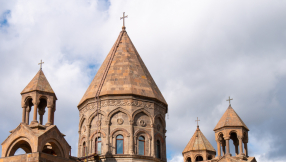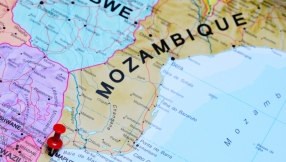Ebola is continuing to cause suffering in the Democratic Republic of Congo, where the death toll recently passed 1,500. Neighbouring Uganda is also on high alert for an outbreak of the disease, for which there is still no cure.
But after the 2014 outbreak, things are different this time round, with governments and health workers not only better prepared, but more informed about what Ebola is and how it can be prevented.
We spoke to Dr Shellina Atwine, Compassion International's Uganda Manager of Program Support, and Dr Yona Kapere, Compassion's Africa regional health advisor based in Uganda, to find out how communities are coping and the role that churches are playing.
CT: What is the mood like among people in the DRC and now among Ugandans? How has this affected them emotionally and spiritually?
Dr Atwine: In Uganda the announcement of Ebola usually causes a state of high alertness. Ever since the Ebola cases were repatriated to DRC [by the family's request], there is a bit of calm in Uganda. However, with the ban on public gatherings still on in Kasese the mood is not normal as yet. Emotionally – at first there was anxiety but with the interventions the Ministry of Health put in place, people are less anxious but still vigilant. Spiritually, it is still a prayer point for many Ugandans.
CT: Has Compassion been involved in prevention or helping communities where it has already spread?
Dr Atwine: In accordance with government regulations to suspend public gatherings in the Kasese region, all frontline church partners in Kasese are not meeting. Compassion Uganda and frontline church partner staff members are supporting the government's efforts for prevention and are making sure families are aware of the disease, how to prevent it and what to do if someone in the family shows symptoms of Ebola. Some churches are broadcasting information on the radio too.
CT: Have churches been able to play a part in the response?
Dr Kapere: The Gospel continues to be preached; however, churches are using every opportunity to educate and raise awareness about Ebola. Churches are also joining together in prayer for the epidemic to come to an end.
CT: What are some of the challenges in responding to Ebola? Has the 2014 outbreak helped African nations in their preparedness or are the challenges just as great?
Dr Kapere: Uganda and other African nations have been working on Ebola prevention and treatment plans since the 2014 outbreak. The response in Uganda has been swift and educated. Doctors and governments have a better understanding of how to prevent an outbreak and recognize the signs of Ebola early on. According to news sources, two of the biggest challenges in containing the outbreak in the DRC is people believing and following the information shared by the government and medical professionals and that the outbreak is in a conflict zone. Many people frequently cross the border between Uganda and the Democratic Republic of Congo. At the border crossings, people are being screened for fever and symptoms of Ebola.
CT: Compassion primarily supports children. How have they been affected by the latest outbreak?
Dr Kapere: In situations of disease outbreaks, children are always at a higher risk. Their smaller size can make them more susceptible to the illness taking hold, and they may not be as aware of the dangers in their environment or proper hygiene practices to prevent getting sick.
CT: The Uganda government recently appealed to people not to spread false rumours about the Ebola outbreak. How much of a problem has this been or are people more informed this time about what Ebola is and how to prevent the spread?
Dr Atwine: There have been several cases both inside and outside the country where people believed a new case of Ebola was present. All of these cases outside of the Kasese area have been proven to not be Ebola. Because doctors are able to understand and identify Ebola so much better than they did five years ago, these cases have not caused huge problems so far.
CT: What would you like the global church to pray for?
Dr Atwine: We would love the global church to support this situation in both Uganda and the DRC by praying for the government officials and health workers as they work to control the outbreak and treat individuals with Ebola. We are praying that the Ebola epidemic in the DRC would come to an end, and that Uganda would avoid an outbreak, therefore prayers for the protection of children and families along the border would be welcomed. Please also lift up in prayer those who have lost loved ones to the disease and for healing for those who have contracted Ebola.













